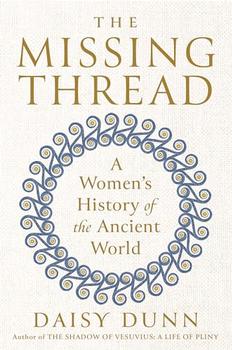
The Forgotten Byzantine Empire That Rescued Western Civilization
by Lars Brownworth
In AD 476 the Roman Empire fell – or rather, its western half did. Its eastern half, which would come to be known as the Byzantine Empire, would endure and often flourish for another eleven centuries. Though its capital would move to Constantinople, its citizens referred to themselves as Roman for the entire duration of the empire's existence. Indeed, so did its neighbors, allies, and enemies: When the Turkish Sultan Mehmet II conquered Constantinople in 1453, he took the title Caesar of Rome, placing himself in a direct line that led back to Augustus.
For far too many otherwise historically savvy people today, the story of the Byzantine civilization is something of a void. Yet for more than a millennium, Byzantium reigned as the glittering seat of Christian civilization. When Europe fell into the Dark Ages, Byzantium held fast against Muslim expansion, keeping Christianity alive. When literacy all but vanished in the West, Byzantium made primary education available to both sexes. Students debated the merits of Plato and Aristotle and commonly committed the entirety of Homer's Iliad to memory. Streams of wealth flowed into Constantinople, making possible unprecedented wonders of art and architecture, from fabulous jeweled mosaics and other iconography to the great church known as the Hagia Sophia that was a vision of heaven on earth. The complex of buildings that made up the Great Palace covered more than forty-five acres, and the city's population was more than twenty times that of modern-day London's.
From Constantine, who founded his eponymous city in the year 330, to Constantine XI, who valiantly fought the empire's final battle more than a thousand years later, the emperors who ruled Byzantium enacted a saga of political intrigue and conquest as astonishing as anything in recorded history. Lost to the West is replete with stories of assassination, mass mutilation and execution, sexual scheming, ruthless grasping for power, and clashing armies that soaked battlefields with the blood of slain warriors numbering in the tens of thousands.
Still, it was Byzantium that preserved for us today the great gifts of the classical world. Of the 55,000 ancient Greek texts in existence today, some 40,000 were transmitted to us by Byzantine scribes. And it was the Byzantine Empire that shielded Western Europe from invasion until it was ready to take its own place at the center of the world stage. Filled with unforgettable stories of emperors, generals, and religious patriarchs, as well as fascinating glimpses into the life of the ordinary citizen, Lost to the West reveals how much we owe to this empire that was the equal of any in its achievements, appetites, and enduring legacy.
"Although Brownsworth admirably illustrates the ways that the Byzantine Empire lives on even today, Judith Herrin's Byzantium: The Surprising Life of a Medieval Empire offers a more compelling and thorough history of this empire." - Publishers Weekly
"An energetic look at a still-misunderstood period in late antiquity." - Kirkus Reviews
"Captivating…In Lost to the West Lars Brownworth shows a novelist's eye for character, bringing to life some of the most fascinating — and yet little known -- figures of the Byzantine era. But it is as a researcher into the obscurities of palace intrigue, treachery, and battlefield carnage that Lars really shines. With dry humor and a palette of vivid images, he recounts the dizzying game of musical chairs that placed one usurper after another on the Byzantine throne, only to be pitched off in a gaudily macabre way. In the end, one is left agog by the irony that the upshot of this centuries-long scrum was the preservation of nearly all that the Greeks have bequeathed to us." - Steven Pressfield, author of Gates of Fire
This information about Lost to the West was first featured
in "The BookBrowse Review" - BookBrowse's membership magazine, and in our weekly "Publishing This Week" newsletter. Publication information is for the USA, and (unless stated otherwise) represents the first print edition. The reviews are necessarily limited to those that were available to us ahead of publication. If you are the publisher or author and feel that they do not properly reflect the range of media opinion now available, send us a message with the mainstream reviews that you would like to see added.
Any "Author Information" displayed below reflects the author's biography at the time this particular book was published.
Lars Brownworth, a former high-school history teacher, is the creator of the podcast phenomenon "12 Byzantine Rulers" that iTunes named as one of the "podcasts that define the genre." Brownworth and his podcast have been profiled in the New York Times, Wired, and USA Today, and were featured on NPR.




Your guide toexceptional books
BookBrowse seeks out and recommends the best in contemporary fiction and nonfiction—books that not only engage and entertain but also deepen our understanding of ourselves and the world around us.